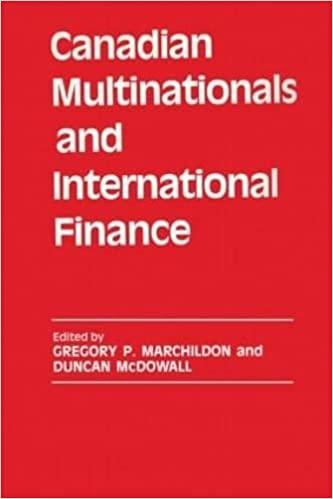Question
The Cosmo K Manufacturing Group is considering the addition of a new smelting machine or a new paving machine. The two investments are mutually exclusive;
The Cosmo K Manufacturing Group is considering the addition of a new smelting machine or a new paving machine. The two investments are mutually exclusive; if one is selected, the other is rejected. The annual cash flows after taxes and the effects of depreciation, which begin one year from project start, and their respective probabilities are given below: Smelting Machine Paving Machine Probability Net Cash Flows per Year Probability Net Cash Flows per Year 0.2 $14,100.00 0.2 $2,000.00 0.5 $16,000.00 0.5 $16,000.00 0.2 $17,000.00 0.2 $22,000.00 0.1 $20,000.00 0.1 $33,000.00 Each project has an expected life of 4 years and will cost $45,000. The riskier project will be evaluated at the company's WACC plus 3%, and the less risky project will be evaluated at the company's WACC. Cosmo K has the following capital structure: Debt: 30% Preferred stock: 16% Common stock: 54% This capital structure is current and consistent with the company's objectives and so will be used to raise any new funds. All new debt will be raised using long-term bonds, with no short-term debt being used for the new project. New bonds will have a coupon rate of 13%. The company's common stock is currently selling for $65 per share, paid a dividend of $4.25 last year, and has an expected growth rate of 6% indefinitely. There will be no floatation costs on new common stock. Preferred stock can be sold for $90 per share and pays a dividend of $10, with a floatation cost of $2 per share. Currently, the market risk premium is 5% and the risk-free rate is 8%. Cosmo K's beta coefficient is currently 1.23 and is expected to be consistent for the foreseeable future. The tax rate is expected to be 40% for the next decade What is the coefficient of variation for each investment? Given the data above, which investment has the higher risk? What is the expected net present value (NPV) for each investment? What is the internal rate of return (IRR) of the investments?
Step by Step Solution
There are 3 Steps involved in it
Step: 1

Get Instant Access to Expert-Tailored Solutions
See step-by-step solutions with expert insights and AI powered tools for academic success
Step: 2

Step: 3

Ace Your Homework with AI
Get the answers you need in no time with our AI-driven, step-by-step assistance
Get Started


